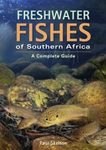By: Fabiana Cézar Félix-Hackradt(Editor), Carlos Werner Hackradt(Editor), José Antonio García-Charton(Editor)
232 pages, colour & b/w photos, b/w illustrations, tables
![Biology and Ecology of Groupers Biology and Ecology of Groupers]()
Click to have a closer look
About this book
Contents
Customer reviews
Biography
Related titles
About this book
Groupers are fascinating charismatic fishes commonly found in reef habitats around the world that sustain a global multimillionaire fishery. They are important top predator species and therefore of paramount ecological importance for reef system’s resilience. Biology and Ecology of Groupers is an up to date review of the main bio-ecological topics involving worldwide groupers species oriented to academic community and managers. It covers aspects of classification and phylogenetic relationships, geographical distribution, and life history related characteristics (Section I), including the major threats of groupers populations, case studies of successful management and comments about the future of groupers in our changing world (Section II).
Contents
Biology and Ecology of Groupers
- Classification of Groupers / Ka Yan Ma and Matthew T. Craig
- Early Life Development / Fabiana C. Félix-Hackradt
- Sexual Patterns and Reproductive Behaviours in Groupers / Beatrice Padovani Ferreira, Simone Marques, Mario Vinicius Condini and Min Liu
- Feeding Biology of Groupers / M. Harmelin-Vivien and J.G. Harmelin
- Interspecific Relationships / Patrice Francour and Giulia Prato
Conservation and Management
- Fisheries Regulation: Groupers’ Management and Conservation / D. Rocklin, I. Rojo, M. Muntoni, D. Mateos-Molina, I. Bejarano, A. Caló, M. Russell, J. Garcia, F.C. Félix-Hackradt, C.W. Hackradt and J.A. García-Charton
- Grouper Aquaculture: World Status and Perspectives / Branko Glamuzina and Michael A. Rimmer
- The Importance of Groupers and Threats to Their Future / Yvonne Sadovy de Mitcheson and Min Liu
Customer Reviews
Biography
Fabiana Cézar Félix-Hackradt is a Marine Ecologist researcher from the Federal University of Southern Bahia, Brazil, with experience on early life stages of coral reef fishes and population dynamics, including the application of conservation genetic tools to evaluate the effects of anthropogenic impacts and protection measures over fish diversity. She is also an advisor with several conservation unit committees representing the scientific community in order to assist local and regional management planning for the marine environment and wildlife conservation and sustainability.
Carlos Werner Hackradt is an Associate Professor in the Marine Ecology and Conservation Lab from the Federal University of Southern Bahia, Brazil, with experience in coral reef fishes ecology. His interest is how populations can be resilient to human stressors like fisheries, pollution and climate changes, and for that, he employs techniques such as telemetry, underwater visual census, accelerometers among others to understand reef fish population ecology. His PhD aimed to describe grouper’s movement dynamics and the protective effect of MPAs. He is acting as a scientific advisor for local MPA and marine stakeholders in Bahia.
José Antonio García-Charton is Associate Professor of Ecology at the University of Murcia (Spain). His main research interest focuses on reef fish ecology (habitat associations, settlement, recruitment, mobility, connectivity) and rocky reef community dynamics, as well as on the protection of marine biodiversity and the conservation and management of fishing resources, especially using marine protected areas. More recently, he is developing multidisciplinary, socio-ecological projects on marine citizen science and marine governance. He regularly advises national and international agencies on the management and conservation of marine ecosystems.
By: Fabiana Cézar Félix-Hackradt(Editor), Carlos Werner Hackradt(Editor), José Antonio García-Charton(Editor)
232 pages, colour & b/w photos, b/w illustrations, tables



































